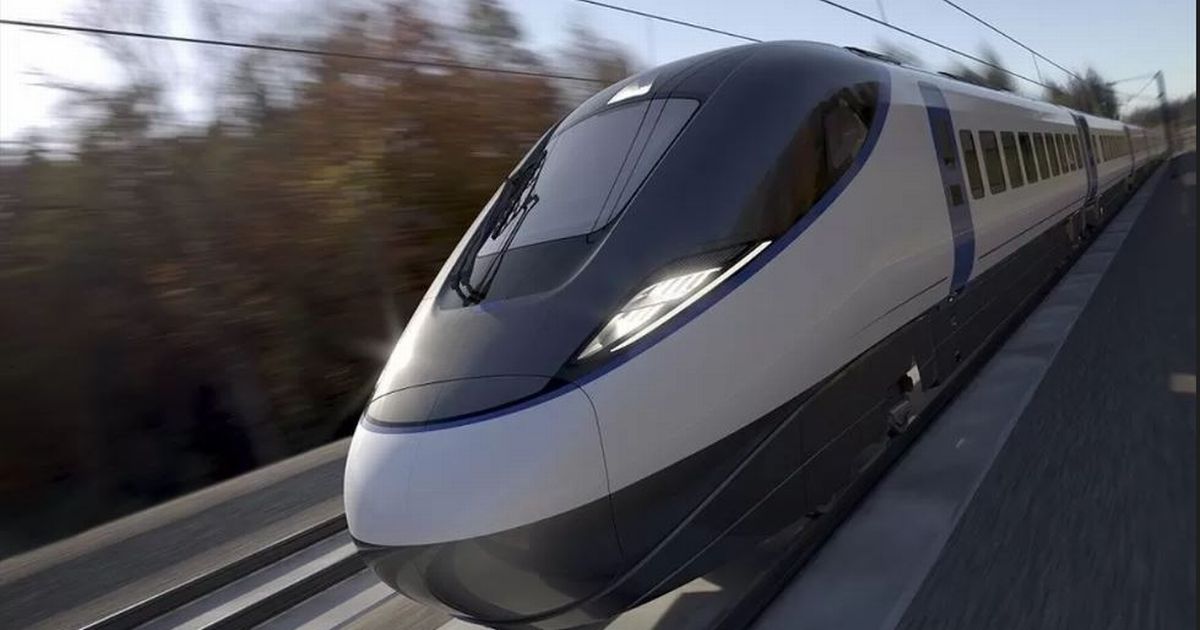Plans for new train services between London and Manchester have been revealed following the cancellation of the northern section of HS2. Operator London Northwestern Railway is seeking permission to extend its existing services – which run between the capital and Crewe – to Manchester Victoria via the West Midlands.
It seeks to use the same track space on the West Coast Main Line that Virgin Trains and Lumo have announced open access bids for. A decision on which services can launch will be made by the Department for Transport and regulator Office of Rail and Road (ORR).
If London Northwestern Railway’s proposal is approved, new direct services will be built from Rugeley, Lichfield, Tamworth and Atherstone in the West Midlands to Manchester city centre and Warrington from summer 2026, using Class 730 electric trains.
READ MORE: Baby dies on site, police investigation underway
In October last year, on the final day of the Tory Party conference in Manchester, Prime Minister Rishi Sunak cancelled plans to extend the HS2 high-speed rail link between the West Midlands and Manchester, citing prohibitive costs. The decision was fiercely criticised by Greater Manchester Mayor Andy Burnham.
Ian McConnell, managing director of West Midlands Trains, owner of London Northwestern Railway, said: “This proposal puts passengers at the heart of the railway and is the logical solution to improve connectivity between the North West and the West Midlands following the cancellation of the northern section of HS2.
“With platform space at Euston at a premium, the best way to create new travel options to Manchester is simply to expand existing services, rather than trying to cram more trains onto the congested West Coast Main Line.
“Furthermore, unlike the open access model, the millions of pounds of additional revenue our proposals would generate will flow back to the taxpayer, creating a win-win situation for rail passengers.
“Just as we have shown with our existing long-distance services to Birmingham and Liverpool, our green and environmentally friendly new electric trains will provide an affordable alternative to cars and buses, with fares up to 50% cheaper than the main intercity operator.”
Most train operators in England – including London Northwestern Railway – receive a management fee, with the UK government responsible for costs and revenue.
Open access operators receive no subsidies from taxpayers and take all the revenue risks. There are concerns that these services put additional pressure on the rail network and take too much revenue away from conventional operators.
Dominic Booth, CEO of Transport UK Group, the parent company of West Midlands Trains, said: “Our new service proposals represent a significant step forward in improving the rail network between Manchester and London.
“By deploying the new Class 730 electric trains, we will provide greater capacity and comfort for customers travelling to Manchester, while supporting the local economy by creating new jobs in the North West. This proposal is in line with our commitment to delivering efficient, sustainable and customer-focused rail services across the UK.”
London Northwestern Railway is also proposing to run services to Manchester Airport by extending the existing service between Stafford and Crewe. It plans to formally submit its plans to the ORR later this year.
In March this year, a study commissioned by Andy Burnham concluded that a new train line costing less than HS2 was the ‘best solution’ to improving rail services between Manchester and Birmingham. The study by a group of private sector companies considered three options.
This included a new line between Handsacre Junction in Staffordshire, where the first phase of HS2 will finish, and High Legh in Cheshire, where another new line from Manchester to Liverpool will be built. Speaking at a Transport for the North (TfN) board meeting in Leeds today (20 March), Mr Burnham revealed the findings of the research, saying this new line was the “best solution”.
It came after the Mayor of Greater Manchester joined his then West Midlands counterpart Andy Street in Birmingham to discuss how rail links between the two city regions could be improved following the government’s decision to scrap the northern section of HS2 last year. After the meeting, the mayors told media the new train line would cost “significantly less” than HS2 would have.
Mr Burnham told the TfN board meeting that this new line would be largely on the ground, meaning there would be ‘not many’ tunnels needed, making it cheaper to build. He also told the board that any new line would need to run via Crewe, where HS2 trains would stop.
However, he insisted that this proposal is not an attempt to revive HS2. He said: “This is the son or daughter of HS2. It is not the same.”
